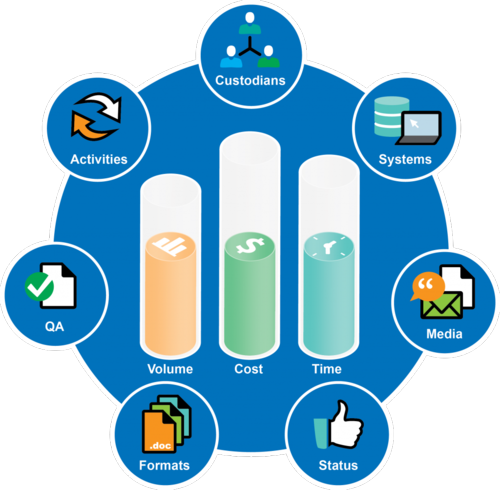eDiscovery Daily Blog
Another New Deliverable from EDRM – eDiscovery Trends

Do you know what container files are? How about the L600 Code Series? Do you know common methods for culling data? What about the difference between a targeted and non-targeted collection strategy?
If you don’t know the answer to these and many other questions related to eDiscovery, you should check out the latest deliverable from the Electronic Discovery Reference Model (EDRM) Metrics team, the EDRM Metrics Glossary.
As noted in their press release announcement, the glossary contains definitions for 90 terms used in connection with the updated EDRM Metrics Model published in June 2013 (which was covered by the blog here). The EDRM Metrics Model provides a framework for planning, preparation, execution and follow-up of eDiscovery matters and projects by depicting the relationship between the eDiscovery process and how information, activities and outcomes may be measured.
The new glossary was developed by the EDRM Metrics team, led by Kevin Clark and Dera Nevin with special assistance from team members Erin Corken, Eric Derk, Matthew Knouff, Carla Pagan, David Robertson, Bob Rohlf, Jim Taylor, Vicki Towne and Sonia Waiters.
The entire EDRM Metrics Glossary can be found here.
It has been a busy year for EDRM. In addition to announcing a transition to nonprofit status by May 2014, since the May annual meeting, several EDRM projects (Metrics, Jobs, Data Set and the new Native Files project) have already announced new deliverables and/or requested feedback. And, just a couple of weeks ago, EDRM published new Collection Standards for collecting electronically stored information (ESI). And, there is still almost half a year to go before next year’s annual meeting. Wow.
So, what do you think? Will you use the new EDRM Metrics Glossary? Please share any comments you might have or if you’d like to know more about a particular topic.
Disclaimer: The views represented herein are exclusively the views of the author, and do not necessarily represent the views held by CloudNine Discovery. eDiscoveryDaily is made available by CloudNine Discovery solely for educational purposes to provide general information about general eDiscovery principles and not to provide specific legal advice applicable to any particular circumstance. eDiscoveryDaily should not be used as a substitute for competent legal advice from a lawyer you have retained and who has agreed to represent you.
